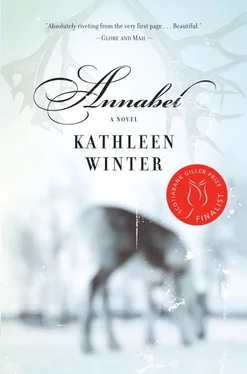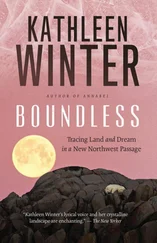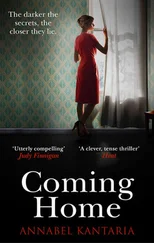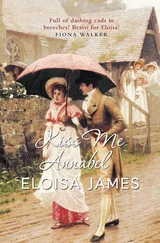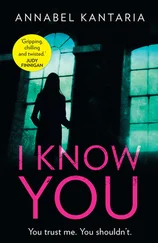Wayne did not have to pee. He noticed Wally Michelin’s date, Tim McPhail, at the canteen buying a Sprite and a Pepsi. He made sure his buttons were fastened and put a Sen-Sen under his tongue before asking Wally Michelin to dance. It wasn’t a slow dance; it was Cyndi Lauper singing “Girls Just Wanna Have Fun.” It did not create the moment he wanted to create at all, and he felt stupid. He realized Wally knew he was drunk. The music was loud, and instead of saying she would dance with him, Wally stood against the wall and said something he couldn’t hear, so he shouted.
“It’s okay,” he shouted, “if you don’t want to dance with me. I just wanted to say hi.” She opened her mouth again but there was no way he could hear her, and it reminded him of a terrible summer afternoon the June after she had lost her voice.
Wayne had walked beyond the apple tree blossoming behind Treadway’s shed to read My Darling, My Hamburger in the long grass. But the apple blossom had lured him back under the tree. He lay with the book on his chest, listening to bees, then to the rustling of beetles in the grass, then the robin who had her nest in the shed’s broken window, then the songbirds over the whole village. Once you tuned into a sound it led you to other sounds a place was making. Distant gulls, which usually sounded harsh, were softened that day, a Saturday, just as everything about gulls is softened on a blue, high day. The gull that is raucous and starved on a sleety November day becomes a different bird in the sun: wheeling white and gold, floating in ascending spirals — you can’t believe how high — and transparent, sun shining through its wings. Then, under the tree, Wayne had heard another sound: something injured, an animal hurt, or maddened. A hermit thrush rang its high, tumbling bells over the treetops, then the harsh sound came again, almost human. Wayne left his book under the tree and carefully, silently walked to where the sound came from. There was a clearing. Wally Michelin stood alone, opening her mouth with the awful sound coming out. The sound dropped as soon as it left her, and fell on the ground. She’s singing, Wayne had realized. She’s trying to remember Fauré. He had flushed in shame and embarrassment. He backed up, forgetting his book, which was a library book that would get rained on the next day, and he would have to pay the librarian eight dollars to order a new copy. He backed up and hoped Wally Michelin had not seen him. Wally had had her back to him, but with Wally you never knew.
Now here he was, saying something inane to her. Just wanted to say hi? Stupid. He didn’t want to say anything remotely like hi. He wanted to ask her if she had seen him in the clearing that day. He wanted to hear her voice again, even if it couldn’t sing. He wanted to hear her speak, to him alone, even if hi was all they could manage. Maybe hi could be the key to their old world. Keys were smaller than the things they opened, and some keys did not look like keys. To lock his shed Treadway had a stone he kept on a string threaded behind a skinny hole in the boards. If you slotted a stick through the hole and pulled down, the stone undid the latch. Where was the stone Wayne could hand to Wally Michelin now? Tim McPhail wound his way through the crowd balancing Wally’s Sprite and his own Pepsi, his elbows managing to stick out awkwardly and gallantly at the same time. The crazy thought came to Wayne that he could give Wally Michelin his cummerbund. He unhooked the back, crumpled the material into a smashed satin rose, and slipped it into her hand.
“HOW,” WAYNE ASKED HIS MOTHER, “can a postcard take five months to get here?”
“A postcard is such a scrap of a thing,” Jacinta said. “It’s a miracle any arrive at all, especially from across the sea.”
The bridge on Thomasina’s card from Bucharest was only half a bridge. It started in the middle of a field and ended in mid-air. It was not beautiful, and it could not be completed because there was not enough money, or the engineers had failed to consider that the height would interfere with power lines on the far side, or some combination of these things, along with other factors that made the city such a mix of grandeur and chaos.
Thomasina could see how a person could become addicted to moving all over the earth. You started in a new place and the whole city, in this case Bucharest, was a spiritual opening. The people were beautiful. It did not matter that you had been so lonely in Paris you began talking to cedars in the parks. You were out of Paris now, with its smell of Gitanes and violets, and you were in Bucharest. “I have never seen,” she wrote to Wayne, “so many interesting shoes in my life. People rushing, rushing, rushing.”
After Paris, with every street corner and balcony curated, Bucharest felt random and wild.
“I like the ugly parts,” Thomasina wrote, “the old concrete-block buildings, the noise and the dirt, and half the place dug up for repairs. I like that as well as the main boulevard with its cobblestones and very old, grand row houses.”
There had been a stack of books on the sidewalk that she tripped over as she was looking at pieces of sculpture on the lintels.
“I thought it was wonderful,” she wrote to Wayne. “A book sale. Of course I realized I could read none of them. Books started at the door and came down over the steps, filled the little yard, tumbled out the gate, and spread themselves along the sidewalk… it looked as if someone opened the door in the morning and the books marched themselves out and plopped down comfortably wherever they felt like it. I had started to pick through them when I saw, slouched against the fence, a thin man smoking a cigarette. Not only was he surrounded by books, he was face and eyes into a book. You could not distinguish him from the books. I nearly stood on him. I laughed out loud and he never moved. I imagined him getting up at dusk, going up the steps, and saying, ‘Time to come in for the night,’ and the books would sleepily find their way back into the house for a nap… and burst happily out the door the next morning to do it all over again.”
Four months was the length of time Thomasina could stay in a new place and feel the euphoria that comes with exploring streets you have not seen before, hearing a new language, and eating new food. The curiosities of Bucharest would last this long but then other things would take over. She would not write a second postcard when this happened. She would not tell Wayne Bucharest was full of people wearing the same clothes you could buy at the Avalon Mall in St. John’s, or that the same fast-food chains were there, with the same seagulls cramming pieces of fried potato down their throats in the parking lots. She would not talk about the overweight people, the poverty, the sun damage to people’s skin: everyone with gigantic moles. When Thomasina grew weary of a place, when she had absorbed all the surface beauty there was to drink in, she packed her small suitcase and got on a train to elsewhere. There were times she longed to do something simple with her hands that a person who had a home on this earth would do, even if that person’s blind husband and red-haired daughter Annabel had been drowned long ago. Something simple like mixing flour, fat, and ice-cold water in a bowl with a wooden spoon, then rolling it out to make pie dough, and filling the dough with sliced apples.
Wayne wished he could write back to Thomasina. He wished her postcards did not come with no return address, and that they did not take so long to get here. The card from Bucharest was dated in April, and it was September now. What was the good of having someone for a friend, no matter how much they cared about you, if you couldn’t reach them? He could not reach any of the people he should have been close to. His father spent more time than ever in the bush. His mother sat for hours at a time in her kitchen, crocheting or doing nothing at all. The one person for whom he would have given up all other friends, Wally Michelin, was farther from him than ever. Her parents had sent her to stay with her cousin in Boston and work in her aunt’s shop. Boston in those days was where a lot of people went. There was excitement connected with the place. If you went there you would be in America, but it was the elegant and sedate part of America. So it was a place of new beginnings but it was not like the Wild West. If you went to Boston, the people back home in St. Anthony or Croydon Harbour knew you were serious about your future.
Читать дальше
